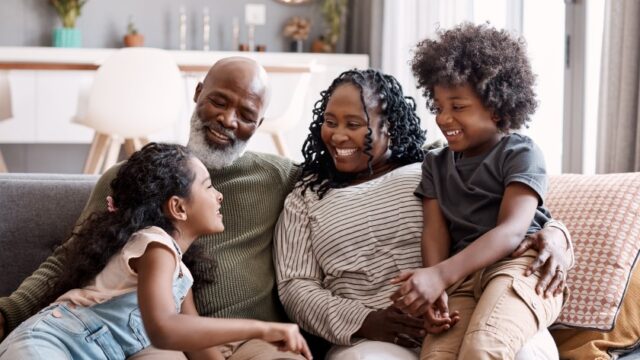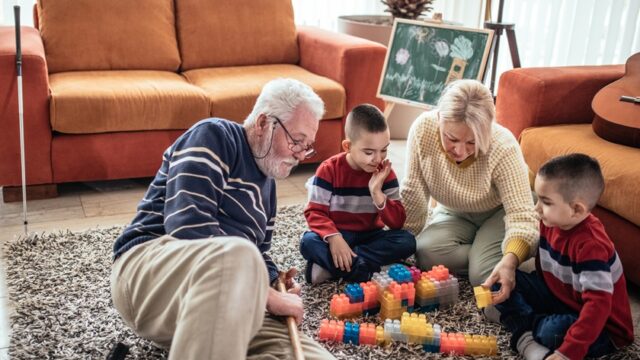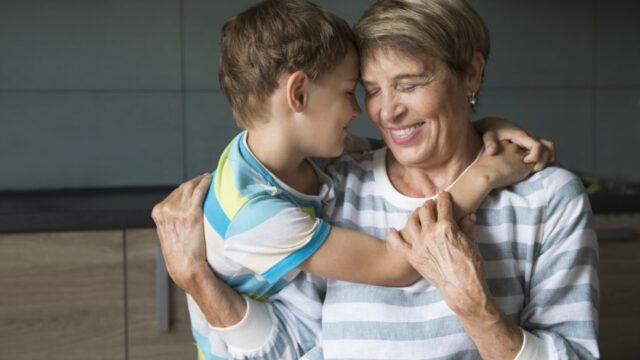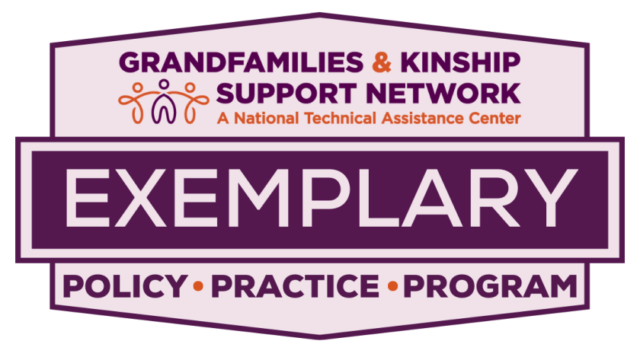Resource Library
Tip Sheet
Grandfamily Support Groups: Seven Tips for Getting Started
Download This Resource
A Network Monthly Resource: January 2024
Many kin caregivers count peer support groups as the lifeline that helped them carry on.
I have discovered that peer support is more valuable to grandfamilies than almost anything else they receive.
Gail Engel, founder/executive director of the Grand Family Coalition, adoptive parent of her grandson
Here are seven tips for getting started.
- Ask grandfamilies what support and information they need. Make sure that their strengths, challenges, and interests guide your programming, informing everything from the format to the frequency to the topics discussed. For information on engaging grandfamilies, see this tip sheet.
- Choose an inviting name. Find a name that suggests friendship and support without sounding like it’s for families with problems that need fixing. Participants in the Grandfamilies & Kinship Support Network webinar on support groups have chosen friendly names like Kinship Connections, Kinship Sharing & Resources, Kinship Empowerment Group, and Kinship Caregivers Connect. One group meets in a coffee shop aptly named Common Grounds.
- Choose whether to meet in-person, online, or in a hybrid format. Online groups became a necessity during the pandemic, and many organizations learned to appreciate the advantages of online meetings, including convenience and the ability to draw from a wide geographic area. Others have returned to meeting face-to-face for warm hugs and a closer sense of connection. Ask caregivers what they prefer and weigh the pros and cons of each format based on your purpose and population.
- Plan engaging programming. There are a variety of approaches to programming—from the very casual to more structured experiences. Programs can be quite informal, providing a time and place for gathering and connecting. Or, they can be structured to provide a series of workshops that participants attend in a prescribed sequence. Workshop series include Parenting a Second Time Around (PASTA), a curriculum from the Cornell Cooperative Extension (8 workshops, $75), and the Grand Connections program for kin caregivers of children under five from ZERO TO THREE (7 workshops, free). Other curricula, like programs offered by Creating a Family, have workshops on a variety of topics available for purchase individually (prices vary). Some organizations invite local speakers to address topics such as legal issues, wills/advance directives, educational issues (including advocacy around special education services), Internet safety and scams, Social Security, and trauma.
- Make attendance easier. Ask participants what days and times work best, and, if meeting in person, provide childcare and other material supports that make it easier and more inviting to participate (like transportation, gas vouchers, and meals). Dawn Davenport, executive director of Creating a Family, says, “Meals are better than snacks, and snacks are better than nothing” to attract families and make them feel welcome. Other organizations have successfully used potlucks, noon meetings with everyone bringing a brownbag lunch, or meetings at the local YMCA with supervised gym time for kids.
- Stay connected between meetings. Once you’ve recruited families, keep them engaged by creating multiple touch points. Kinship expert Angela Tobin calls caregivers on the phone to invite them to meetings, telling them about the group and answering their questions, and she follows up with a weekly newsletter and reminders on the meeting day. It is a great idea to contact caregivers the day after meetings (e.g., by text) if they did not show up and were not in touch, just to make sure everything is okay and let them know that they were missed. You might also consider creating a private Facebook group for your attendees or utilizing other methods (e.g., a list-serv, an e-newsletter, or periodic text messages) to stay connected.
- Help facilitators better understand kinship families. Many curricula are designed to be used right out of the box, with enough background information for any group leader to run a successful group. Individuals or organizations seeking foundational knowledge may want to check out the Certificate in Grandfamilies Leadership offered by the University of Maine (14-week online course, $85). Or check out the Network’s professional development materials for those new to serving kinship families, Grandfamilies 101 (90 minutes, free).
So when I got my granddaughter, I had no idea about grandparents raising grandchildren. That was not on my radar anywhere… I didn’t know there were solutions to certain things that I was going through… [When I went to my first grandparents’ group] I sat there and I just cried. And as I began to talk about things, they were so supportive and they said, ‘Oh, I went through that. This is what you do.
Victoria Gray, founder of GreyNickel, adoptive parent of 7 grandchildren


